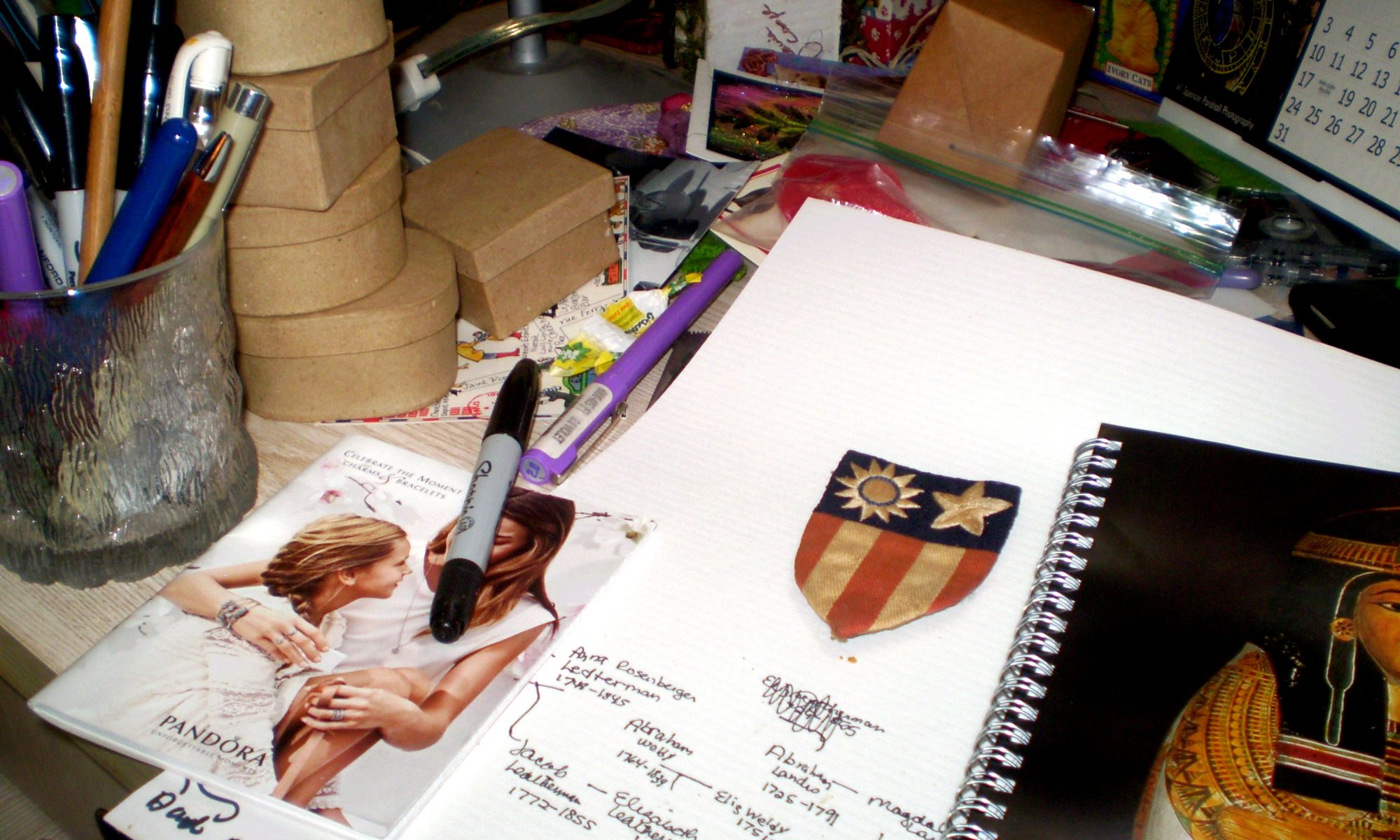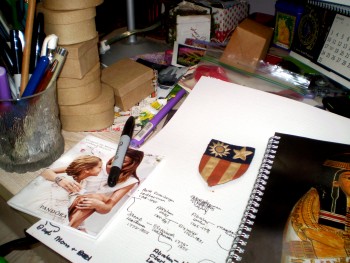
I packed the last of the things left in my office into an already too-full box. A poster of Big Bird that had been on my office wall (where I would put it up at home was and remains a mystery), photos tacked to the bulletin board from PBS conferences, my personal reference books and a few odds and ends — a bobblehead of Doc Martin, a baseball signed by Ken Burns and Negro Baseball League legend Buck O’Neill, and a stuffed Abby Cadabby from Sesame Street. (She holds court now in my home art room!)
It wasn’t the first box I hauled to the car but it was the last.
I had made my goodbyes to colleagues, some of whom I’d known for the past 32 years. No, longer — I started working at our public broadcasting station as a volunteer, then a student. How quickly that time had flown by.
But I was tired. And I hadn’t been well for several months.
Our work environment was extremely stressful and had been that way for the two years leading into my retirement. There had been changes in command, office and departmental reshuffling, new supervisors, changing long developed habits. Most of our staff was operating in an environment that combined caution, fear, exhaustion and low morale.
I lived by the postcard of “The Moscow Rules” that had been given to me from a friend who had 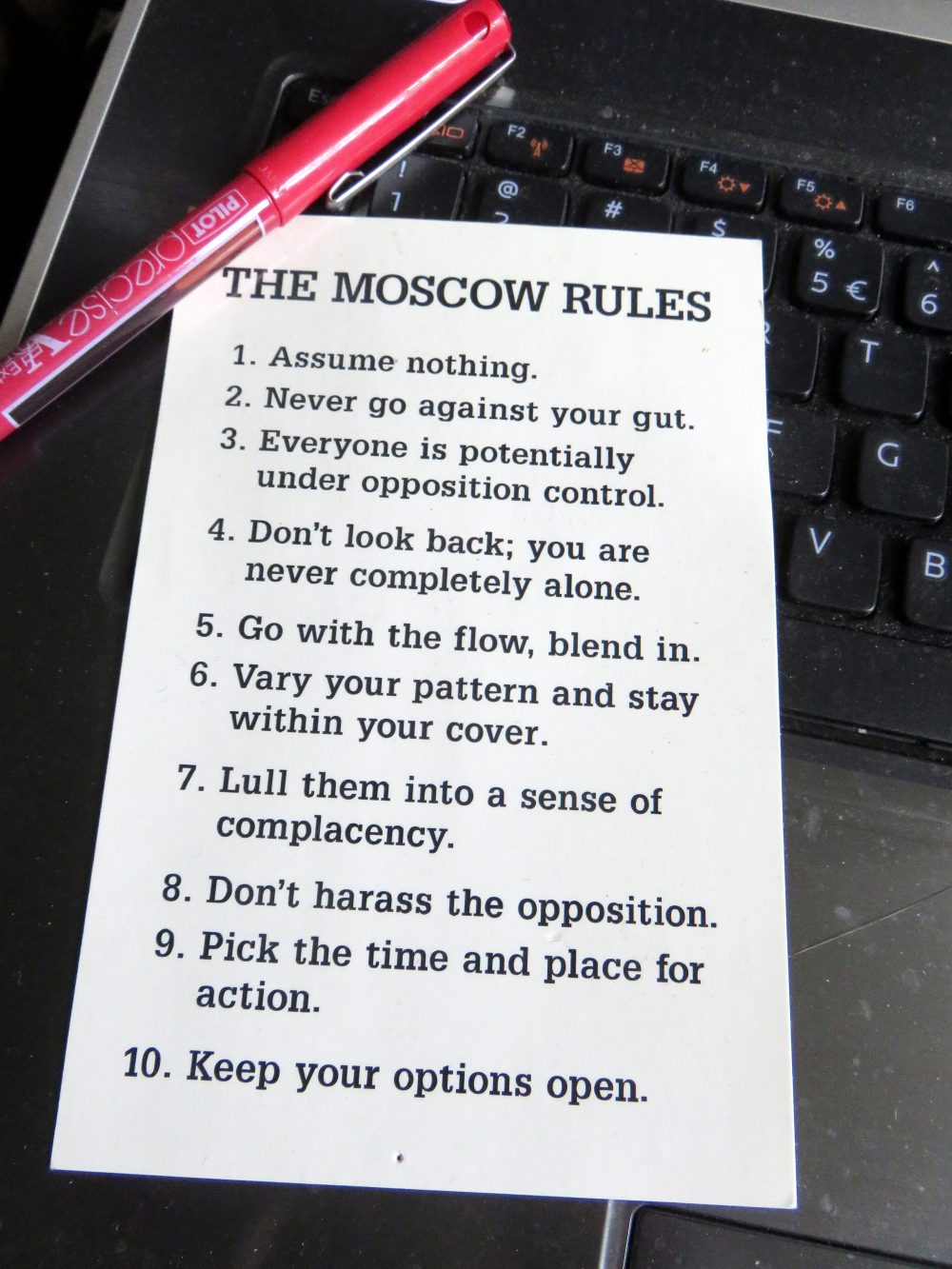 visited the International Spy Museum in Washington, DC. I kept it tucked in the back page of my daily calendar and I lived by the ten rules rigorously. These rules included, among others:
visited the International Spy Museum in Washington, DC. I kept it tucked in the back page of my daily calendar and I lived by the ten rules rigorously. These rules included, among others:
- Assume Nothing
- Go with the flow; blend in
- Lull them into a sense of complacency
- Don’t look back; you are never completely alone
- Don’t harass the opposition
- Pick the time and place for action.
It is a terrible way to live one third of the day, especially given that another third is spent in sleep, waiting to awake and do it all over again.
The tenth of the Moscow Rules is “Keep your options open.” And it was this one that I had clung to. When I turned 62, the best option was to retire.
I preface this article with that background story because when you know it is time to refresh and restore your soul, you have to consider what you’ve been working with and what you need to be able to make those changes without feeling guilty for taking that very important time to simply “be.”
I knew from the beginning that I didn’t like the word “retire.”It sounds so final – so “sit in your chair and watch TV” boring.
I had worked in a highly socialized and public environment and I was worried about missing that. I knew that I had loads of interests and hobbies and I had a lengthy laundry list of things I wanted to do or accomplish. But I wasn’t quite sure how to begin. How would it feel to not get up every morning, dress for work, feed the cat, drive past the lottery billboard that sent me daydreaming for the last five minutes of my journey to work and not feel terribly guilty about it.
So I did the next best thing. I ran away by myself, heading to my summer cottage, shockingly still and peaceful in September after the summer people have removed their docks and gone home for the season.
I took long walks in the late summer air and read books while digging my feet into the cooler sand. I awoke to the cawing of gulls and big black birds, watched the nightly flotilla of ducks on the lake and took trips into town for the weekly market, quieter without the summer people jostling for space around the best of the September harvest. I savored the sunsets, ravishing with colors of hot pink, royal blue, brilliant orange, changing minute by minute until the sky was an inky black. I set no clock, eating when I was hungry, sleeping when I was tired. I unplugged, calling home but staying clear of the internet.
I visited people I had known who retired in Michigan’s north country and as I spoke to each one I collected a list of tips about handling my new life.
“Make at least one date a week with a friend for socialization.”
“Volunteer.”
“Make lists to start with to keep you on track.”
“Look at classes or workshops to learn a new skill.”
All logical things. But they felt more important coming from those who had lived active lives in the workforce and now were living active lives in their new role. They were the not-so-retiring retirees.
A recently retired friend from home joined me for several days of art. We painted, created, took walks, drank wine, and talked for hours.
Bit by bit my battered soul had begun to heal.
Everyone refreshes, renews and restores in their own way. Some stay busy, never having a moment 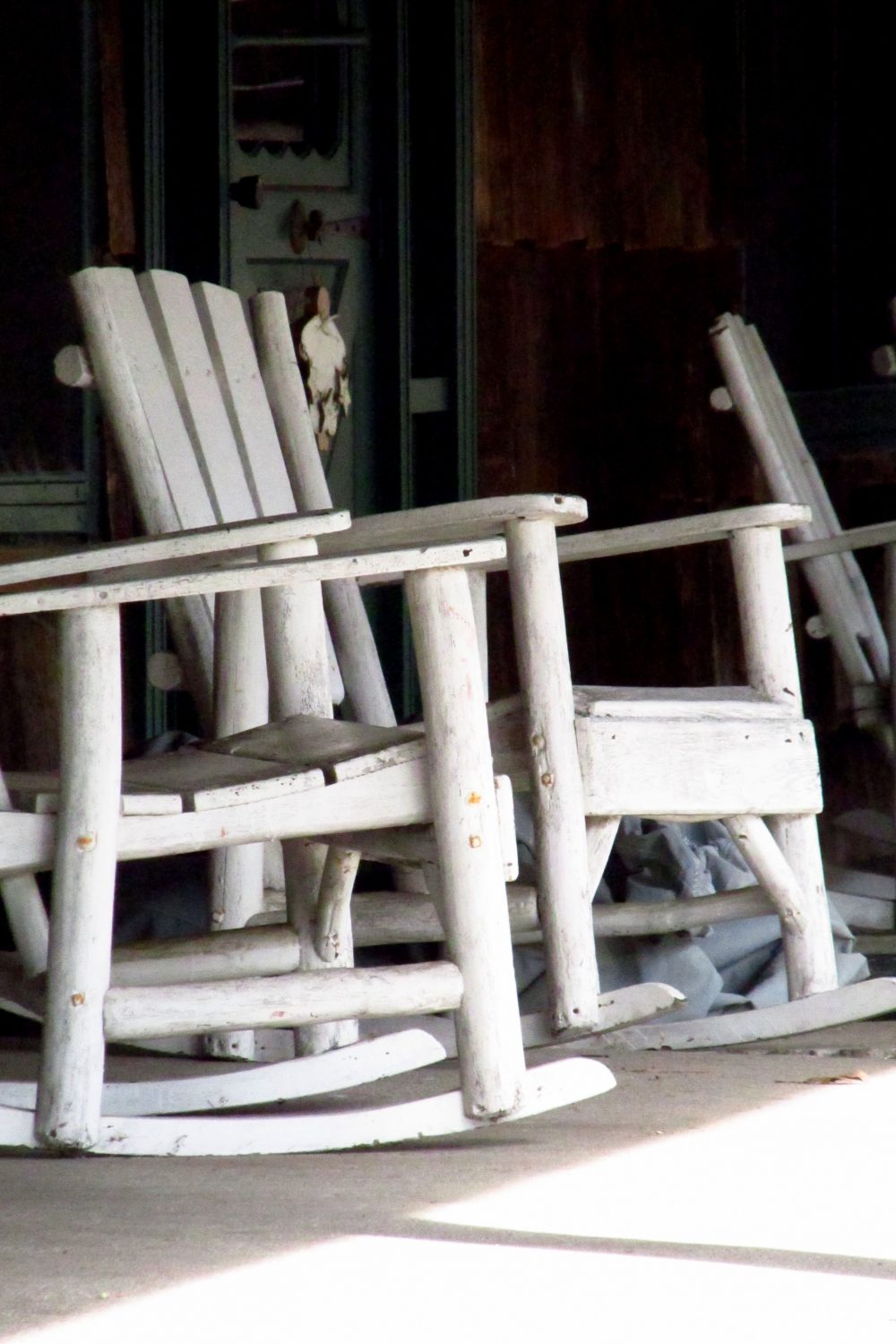 to spare. Others walk with nature, and still more find their refreshment in travel, a sport or a hobby. And many of us do it combining our passions for action and stillness.
to spare. Others walk with nature, and still more find their refreshment in travel, a sport or a hobby. And many of us do it combining our passions for action and stillness.
It’s been nearly four years since I walked out that door. Since then I have been remarkably healthy for one with a chronic condition that was severe enough to motivate a major life change. It tells me a lot about what stress can do to damage your body, much less your soul.
I’ve followed much of the advice shared with me by those who had gone before, maintaining ongoing friendships and get-togethers with former colleagues, volunteering and focusing on my watercolors, showing remarkable improvement with practice.
And I still keep the Moscow Rules on the bulletin board at my desk. Many of them hold true for life, like “assume nothing” and “never go against your gut.”
But the one that I think of most, the one I still live by is “Keep Your Options Open.” After all, refreshment comes in many forms — and it’s always good to be ready for whatever comes next.
About the Author: Jeanie Croope
 After a long career in public broadcasting, Jeanie Croope is now doing all the things she loves — art, photography, writing, cooking, reading wonderful books and discovering a multitude of new creative passions. You can find her blogging about life and all the things she loves at The Marmelade Gypsy.
After a long career in public broadcasting, Jeanie Croope is now doing all the things she loves — art, photography, writing, cooking, reading wonderful books and discovering a multitude of new creative passions. You can find her blogging about life and all the things she loves at The Marmelade Gypsy.

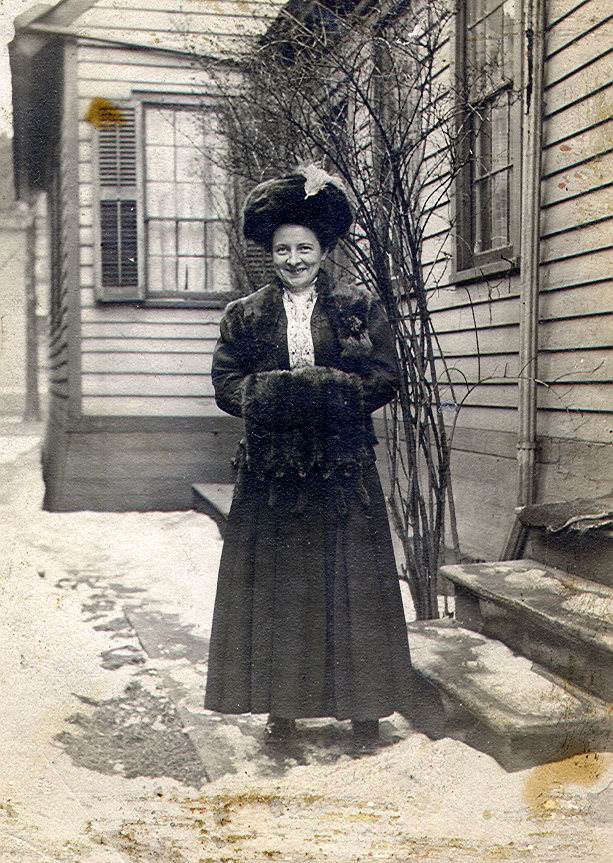
 I’ve always had a curious relationship with the ancestors on my mother’s side, a sense of longing to know them better, physically touch them. I spent much of my childhood time with my dad’s parents, learning to bake at my grandmother’s side, picking vegetables with my grandfather on their farm.
I’ve always had a curious relationship with the ancestors on my mother’s side, a sense of longing to know them better, physically touch them. I spent much of my childhood time with my dad’s parents, learning to bake at my grandmother’s side, picking vegetables with my grandfather on their farm. That is, until one serendipitous moment. Collecting vintage postcards is a passion of mine. I use some in my art, others remind me of places I’ve been or, in the case of the “up north” cards, of the area where my summer house is and where, a short walk away, my mother and her sisters spent their summers with Minnie. I always looked for photo cards that might show the resort where the cottage stood but those that had included house itself were non-existent, perhaps because it was set back further onto the land and in wide shots, the trees blocked it.
That is, until one serendipitous moment. Collecting vintage postcards is a passion of mine. I use some in my art, others remind me of places I’ve been or, in the case of the “up north” cards, of the area where my summer house is and where, a short walk away, my mother and her sisters spent their summers with Minnie. I always looked for photo cards that might show the resort where the cottage stood but those that had included house itself were non-existent, perhaps because it was set back further onto the land and in wide shots, the trees blocked it. “Dear Grace,
“Dear Grace,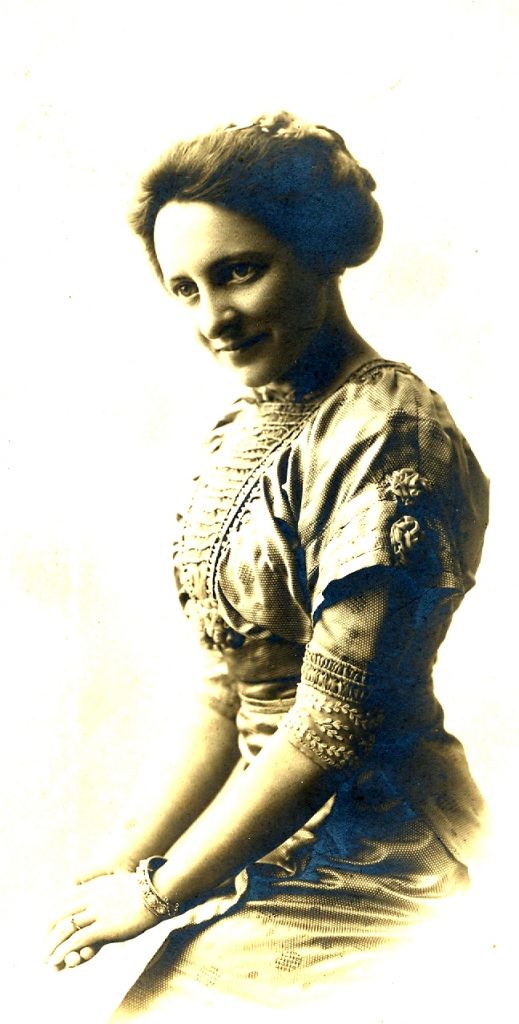 the photograph I can touch.
the photograph I can touch.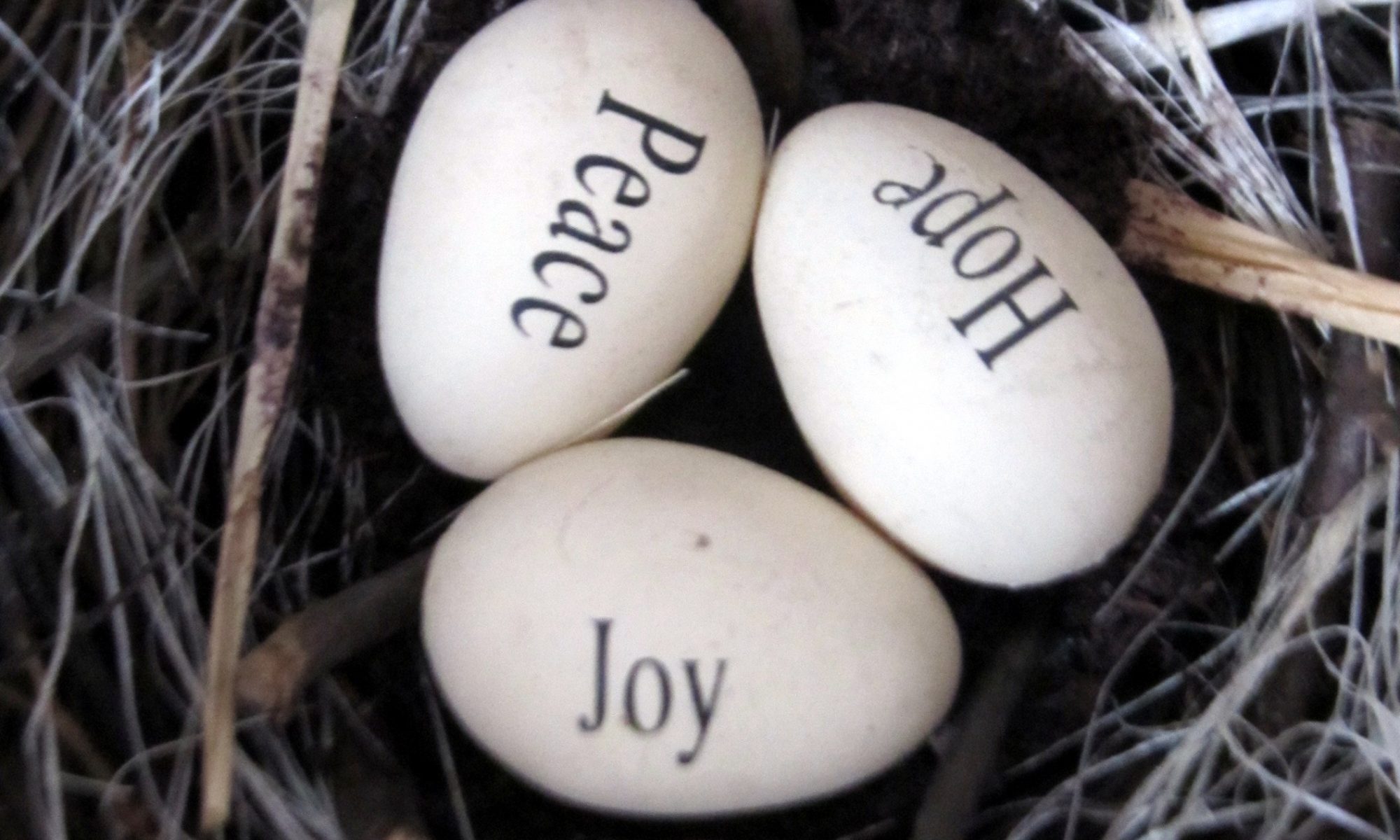
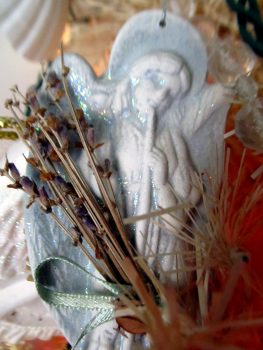 To put this in context, it would be useful to think of me as The Christmas Kid, Mrs. Claus in Training or The One Who Can’t Seem to Quit. I love the holidays and while I refuse to put up one decoration before Thanksgiving, the day after, all bets are off! I have a rather small house and by the time I put Christmas everywhere, I’m often quite sure it is far too over the top and I should have quit long before. And I’m always glad I didn’t!
To put this in context, it would be useful to think of me as The Christmas Kid, Mrs. Claus in Training or The One Who Can’t Seem to Quit. I love the holidays and while I refuse to put up one decoration before Thanksgiving, the day after, all bets are off! I have a rather small house and by the time I put Christmas everywhere, I’m often quite sure it is far too over the top and I should have quit long before. And I’m always glad I didn’t!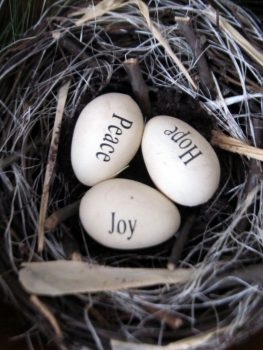 Facing down the holidays during sad times can be a challenge for any of us. That “sadness” may not just be the death of a beloved family member. It can be a divorce or separation that sends a family into divided loyalties and deep grief. It can be the loss of a job or a tragedy, like a house fire. Perhaps a dear family member is in the hospital or has recently faced a catastrophic diagnosis. It may even be despair about the state of the world. We all have our triggers, our life occurrences.
Facing down the holidays during sad times can be a challenge for any of us. That “sadness” may not just be the death of a beloved family member. It can be a divorce or separation that sends a family into divided loyalties and deep grief. It can be the loss of a job or a tragedy, like a house fire. Perhaps a dear family member is in the hospital or has recently faced a catastrophic diagnosis. It may even be despair about the state of the world. We all have our triggers, our life occurrences.
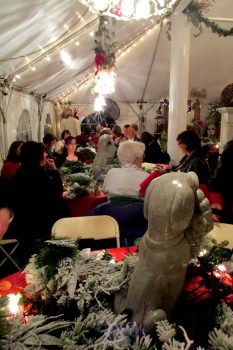
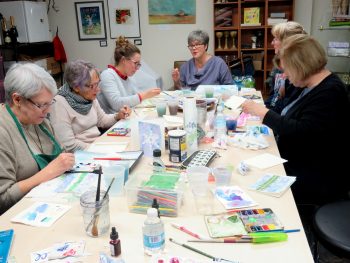 And the best part about this one is that you can do it with anything — the family gathering, your best friend’s party, the experience of baking cookies with the kids.
And the best part about this one is that you can do it with anything — the family gathering, your best friend’s party, the experience of baking cookies with the kids.
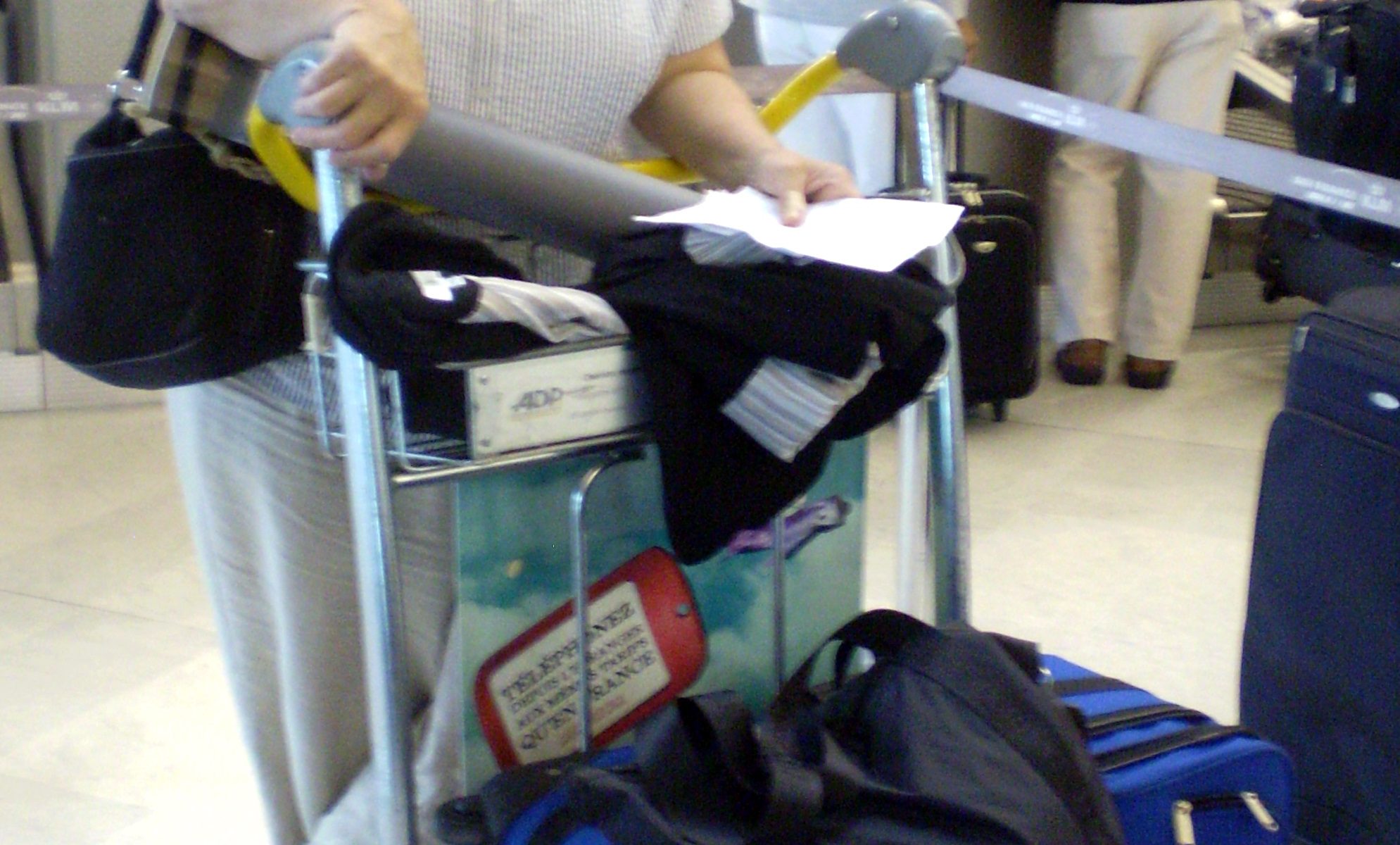
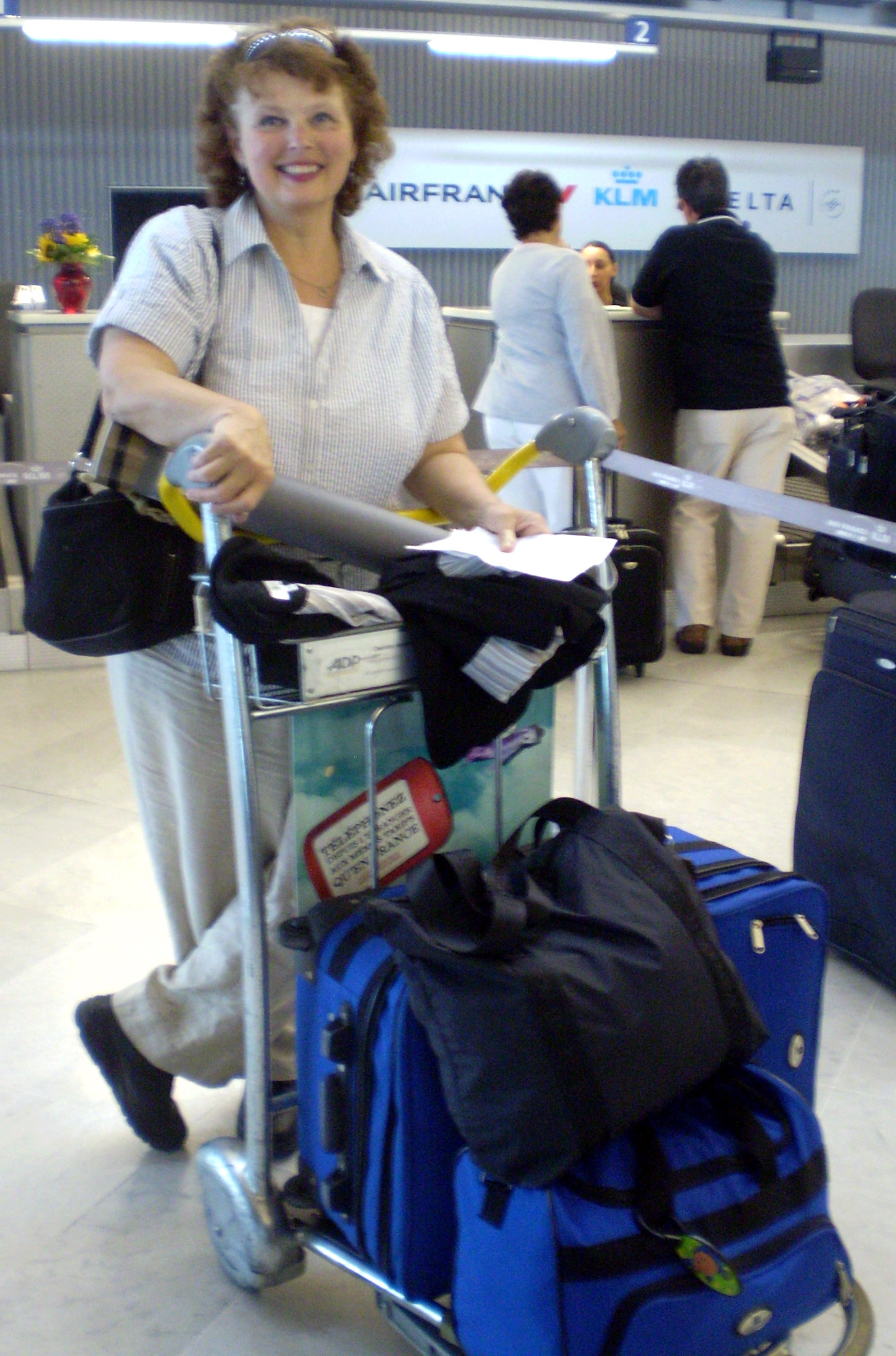 Rick was not impressed. That suitcase slowed me down big time. It was horribly clunky and heavy — definitely not an easy thing to haul up steps.
Rick was not impressed. That suitcase slowed me down big time. It was horribly clunky and heavy — definitely not an easy thing to haul up steps.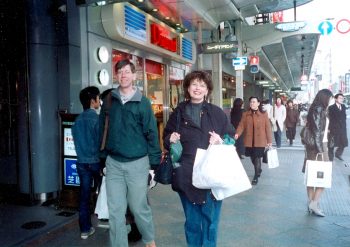 It took me a long time to learn to pack lighter for travel. Even on my first trip to France in 2009, I was loaded down. And that was arriving. Just imagine after shopping for two weeks!
It took me a long time to learn to pack lighter for travel. Even on my first trip to France in 2009, I was loaded down. And that was arriving. Just imagine after shopping for two weeks!
 I’m writing this at my summer house in Northern Michigan, tapping on my laptop in a document because I don’t have an internet connection.
I’m writing this at my summer house in Northern Michigan, tapping on my laptop in a document because I don’t have an internet connection.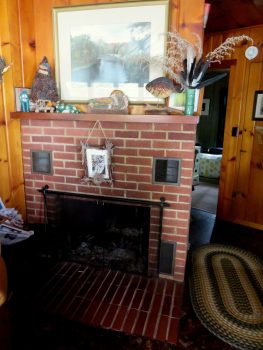
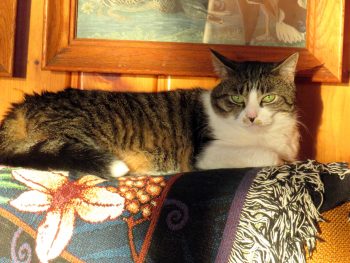


 I knew that in due course I would receive a reply that I would answer and the circle would continue. And even before those words were typed, I was excited and eager for that reply.
I knew that in due course I would receive a reply that I would answer and the circle would continue. And even before those words were typed, I was excited and eager for that reply.

 of good theatre in our community, a few gatherings with friends and of course the never-ending family heritage project that has evolved into a family history book of shared stories. All too quickly it will be time for summer road trips and joyful days at the lake where I will park myself on the porch with paint and glue and create things.
of good theatre in our community, a few gatherings with friends and of course the never-ending family heritage project that has evolved into a family history book of shared stories. All too quickly it will be time for summer road trips and joyful days at the lake where I will park myself on the porch with paint and glue and create things.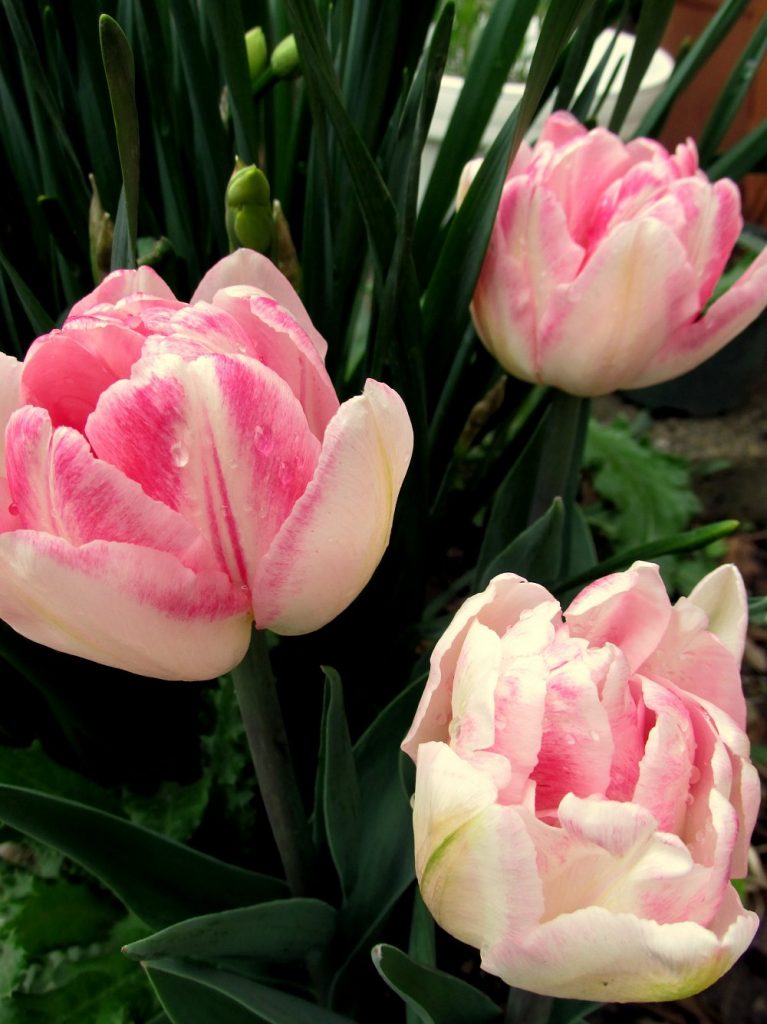 arbor of deep green leaves is like now passing through a cloud of soft, misty chartreuse. The world is waking up.
arbor of deep green leaves is like now passing through a cloud of soft, misty chartreuse. The world is waking up. hear a loud, contented purr as you stroke the satiny fur. “Now” are the moments on the phone with a far-away friend, the warmth of the body next to you as you drift off to sleep, the fragrance of the hyacinth blossom you hold to your nose as you deeply inhale its sweet scent. “Now” is watching in awe as Harry the Heron makes his springtime debut, bringing with him the promise of all the beautiful days that will be “next.
hear a loud, contented purr as you stroke the satiny fur. “Now” are the moments on the phone with a far-away friend, the warmth of the body next to you as you drift off to sleep, the fragrance of the hyacinth blossom you hold to your nose as you deeply inhale its sweet scent. “Now” is watching in awe as Harry the Heron makes his springtime debut, bringing with him the promise of all the beautiful days that will be “next.